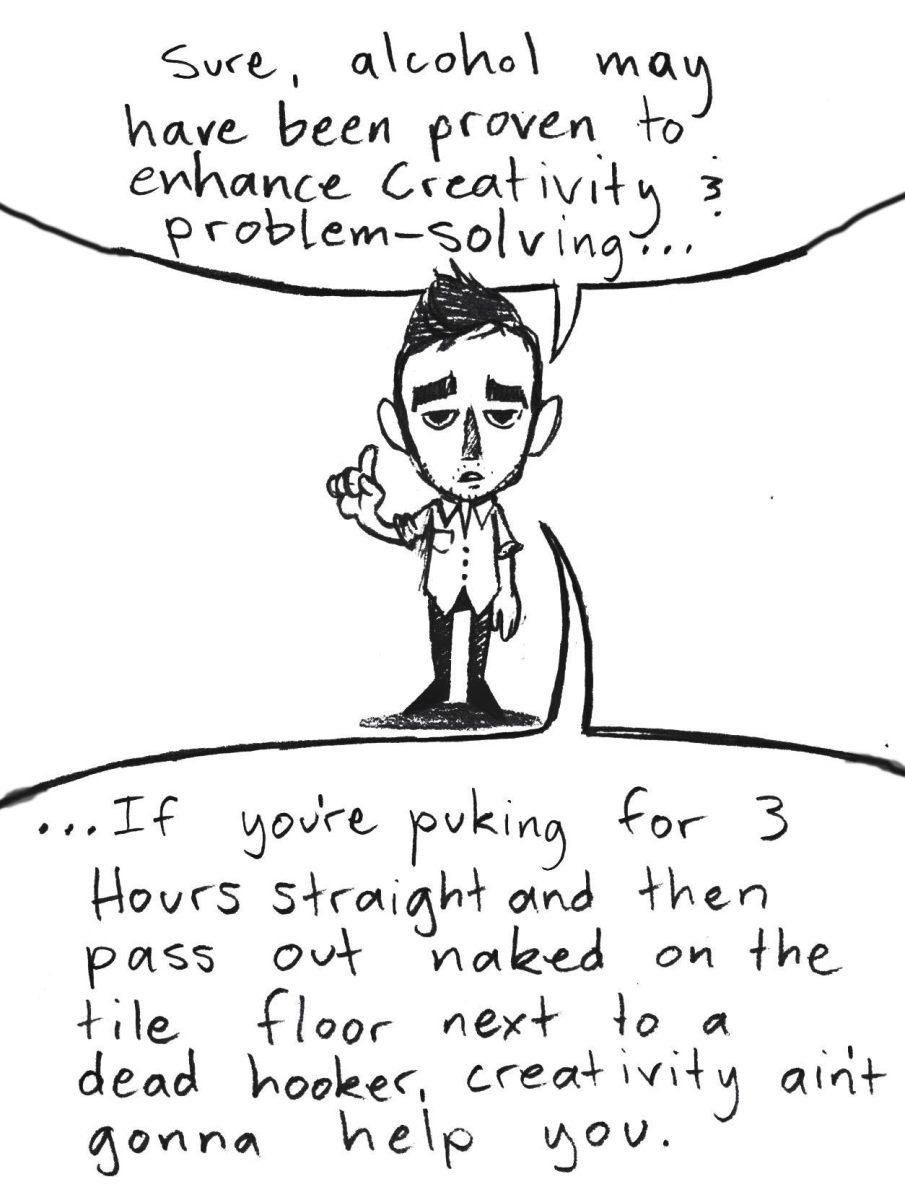If persuading people not to drive after drinking was as easy as making everyone wear drunk goggles for a few minutes, the former wouldn’t be one of the top killers of young adults in America.
April marks Alcohol Awareness Month, which is why there are more public service announcements about consumption responsibility and how being drunk isn’t cool. April 18 was Alcohol Awareness Day and an event in Free Speech Alley provided students with facts on drinking.
With only passive ads in the newspaper and not much discussion about Alcohol Awareness Month, I began to wonder why one of the top-five party schools didn’t do more to promote drinking responsibility.
Perhaps living in Louisiana and the overexposure to alcohol consumption has prepared us to act responsibly.
“Alcohol awareness is an ongoing issue for us. It doesn’t start or stop with awareness week or day,” said Health Promotion Coordinator Kathy Saichuk.
Over-awareness and scare tactics in advertisements have not changed true behavior in the long run. Changes in behavior only take place thanks to an increase in the knowledge base or an event where you are forced to take the situation seriously and apply the lesson learned into your own life.
Thus, awareness months, days and weeks are good for just that – awareness. Generating awareness is great, but it won’t produce critical thought or enough to change behavior.
Despite what most people – including myself – tend to believe, LSU takes a strong active role in providing education and counseling on alcohol, drugs and sexual awareness. Before even taking their first class on campus, students will receive some form of discussion about drinking choices, its effects and later consequences.
Freshmen are also required to go through an online course at mystudentbody.com that provides adequate statistics and a realistic perception about college and how much alcohol the average student consumes.
“Tailgating and adults consuming alcohol intensively tends to distort views about college life – and that ‘everyone is doing it,'” Saichuk said. “When in actuality, about 19 percent of students are not consuming at all.”
After being on campus for 12 years, Saichuk has seen huge changes in societal behavior, enforcement of acceptable conduct and extremely less tolerance for extreme behavior. Science has also improved in determining and displaying how alcohol affects the brain.
“There was a time where people were allowed to bring open alcohol into Tiger Stadium, but it got out of control and rules changed,” Saichuk said.
We have all seen someone around us go too far with alcohol. Unfortunately, we have a bad reputation for it, along with other activities occurring too frequently in our state. But events occur, we learn from them and make more proactive choices the next time around.
Students on campus need to realize that just because we have a reputation for being a party school doesn’t mean that we don’t understand how potent alcohol really is or feel the need to prove it.
When comparing the University’s survey statistics to those of the National College Health Association’s for responsible drinking choices, ours were either the same or below national averages.
On the other hand, just because you’re in college and can stay up past midnight doesn’t mean that you should disregard all the warnings and reminders about alcohol consumption and responsibility. According to the data compared with national averages, LSU still has high numbers of drinking and driving.
One can argue the higher statistic results from Baton Rouge having a poor mass transit system, yet the personal choice to drive while intoxicated is still avoidable.
So just remember to get a D.D., and keep party rockin’ – responsibly – every month of the year.
Marie-Therese Yokum is a 19-year-old mass communication and finance sophomore from Lafayette. Follow her on Twitter @mtyokm_TDR.
____
Contact Marie-Therese Yokum at myokum@lsureveille.com
Never Empty Thoughts: Alcohol Awareness Month largely ignored by students
April 27, 2012






